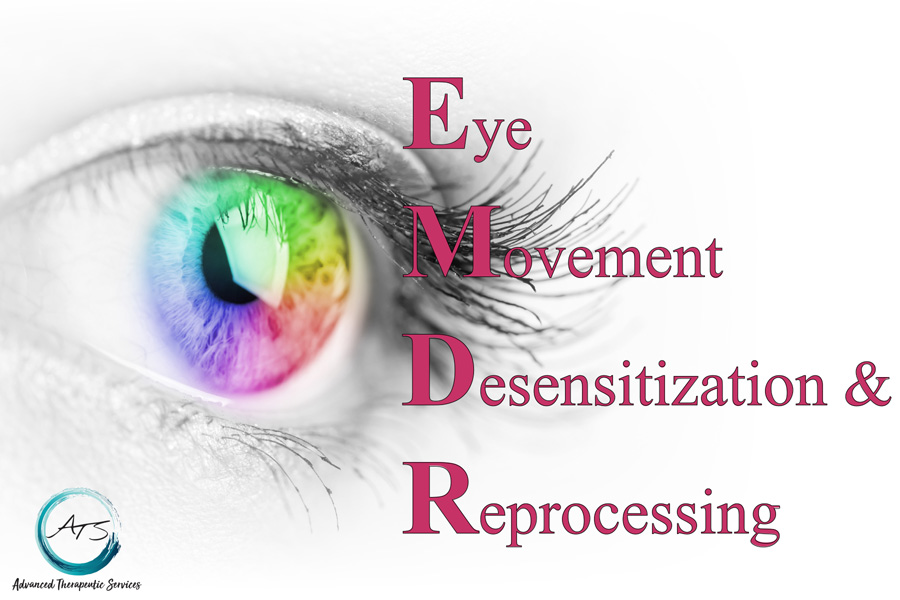
Addiction is a complex and challenging condition that affects millions of individuals worldwide. While traditional addiction treatments have proven effective, there is growing recognition of the benefits of incorporating innovative therapies into the recovery process. Eye Movement Desensitization and Reprocessing (EMDR), available at Advanced Therapeutic Services in Rancho Mirage, CA, is one such therapy that offers remarkable advantages in addressing addiction. In this blog, we will delve into how EMDR can facilitate healing, promote lasting recovery, and empower individuals seeking addiction treatment.
Trauma-Informed Approach
Trauma is often closely intertwined with addiction, as individuals may turn to substances or behaviors as a means of coping with distressing experiences. EMDR’s unique approach to healing trauma makes it highly effective in addiction treatment. By targeting and reprocessing traumatic memories that underlie addictive behaviors, EMDR helps individuals identify and address the root causes of their addiction. This trauma-informed approach allows clients to develop healthier coping strategies and reduce the likelihood of relapse.
Cravings and Triggers Management
One of the primary challenges in addiction recovery is managing cravings and triggers that can lead to relapse. EMDR offers valuable tools to individuals by desensitizing and reprocessing the emotional charge associated with substance-related triggers. Through bilateral stimulation, EMDR assists clients in processing the memories and emotions linked to cravings, thereby reducing their intensity and power. This newfound ability to manage cravings and triggers significantly strengthens an individual’s resilience and supports long-term recovery.
Rebuilding Self-Esteem and Identity
Addiction often erodes an individual’s self-esteem and disrupts their sense of identity. EMDR addresses these underlying issues by assisting clients in reprocessing negative beliefs about themselves and their capabilities. By challenging and transforming these self-limiting beliefs, individuals can rebuild their selfesteem and develop a positive self-concept. EMDR helps clients establish a stronger foundation for recovery, fostering a sense of self-worth and empowerment.
Addressing Co-Occurring Disorders
Many individuals struggling with addiction also experience co-occurring mental health disorders such as anxiety, depression, or post-traumatic stress disorder (PTSD). EMDR’s comprehensive approach enables therapists to simultaneously address both addiction and co-occurring disorders. By identifying and reprocessing traumatic memories or negative beliefs associated with these conditions, EMDR helps individuals reduce symptoms and improve their overall well-being. Treating the interconnectedness of addiction and mental health disorders enhances the chances of successful recovery.
Enhancing Emotional Regulation and Coping Skills
Substance abuse often serves as a maladaptive coping mechanism for managing overwhelming emotions. EMDR equips individuals with essential emotional regulation and coping skills, promoting healthier alternatives to substance use. Through the reprocessing of traumatic memories and negative beliefs, EMDR assists clients in developing adaptive responses to emotional triggers, enhancing their ability to navigate challenging situations without resorting to addictive behaviors.
In Conclusion:
At Advanced Therapeutic Services in Rancho Mirage, CA, EMDR offers a transformative approach to addiction treatment. By addressing trauma, managing cravings and triggers, rebuilding self-esteem, and enhancing emotional regulation, EMDR plays a pivotal role in empowering individuals on their journey to lasting recovery. If you or someone you know is seeking effective and innovative addiction treatment, consider the power of EMDR at Advanced Therapeutic Services. Embrace the opportunity to break free from the chains of addiction and embark on a path of healing and renewed hope.
Sources Cited:
Shapiro, Francine. “What is EMDR?” EMDR Institute, Inc., https://www.emdr.com/what-is-emdr/
“Eye Movement Desensitization and Reprocessing Therapy.” Psychology Today, Sussex Publishers, LLC,
https://www.psychologytoday.com/us/therapy-types/eye-movement-desensitization-and-reprocessing-therapy/

